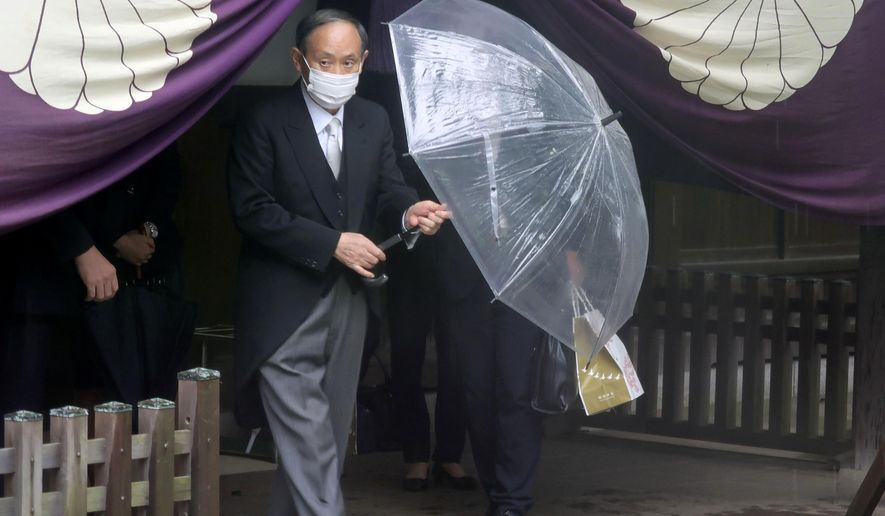OPINION:
Our enemies see a diminished America as a win for them. Our friends see it as a loss. When we work together with friends and allies, we — and all the free world — win.
Consider Northeast Asia. Cooperation in dealing with the concerns posed by North Korea and China pose major threats there, yet we have valuable allies in South Korea and Japan. Working together, Seoul, Tokyo and Washington help secure peace and prosperity for each other, as well as other nations in Asia and the Pacific.
Yet much more could be done. For too long, divisions sown by history, domestic politics, sovereignty disputes and other disagreements have hamstrung cooperation between Japan and South Korea. America must help bring the two nations closer if we are to forge stronger trilateral relations.
The U.S. can’t win by taking sides in the finger-pointing that has strained Japanese-Korean relations in the past. But Washington can’t ignore these past troubles either. The friction that hinders full-throated cooperation across the economic, security, and diplomatic space hurts us, undermining the U.S. goal of partnering to secure a free and open Indo-Pacific where trade, energy, peoples and prosperity flow on a peaceful current from the Northeast Asia across the expanse of the Indian Ocean to the doorways of Middle East and Africa. If historic progress is going to be in this endeavor, America cannot be hands-off.
In an era when Americans don’t seem to agree on much, investing in the trilateral relationship offers one opportunity for a common agenda. Past administrations of both parties have made progress when working quietly behind the scenes, engaging and pressing both Tokyo and Seoul to find paths forward. We have both seen that firsthand. We have also seen that, when the U.S detached itself, bilateral relations deteriorated.
This and future administrations should follow the formula that works: persistent, low-profile engagement between the two capitals that builds trust and confidence, resolves issues and commits to sustaining agreements.
Now is a good time to ramp up this effort. Japan’s new prime minister, Fumio Kishida, was foreign minister in 2015 and 2016 when two key bilateral agreements were signed — one on the historical legacy of “comfort women,” the other on intelligence-sharing.
South Korea will soon have a new leader as well. President Moon Jae-in is constitutionally precluded from running for a second term. It’s time to lay the groundwork for the kind of discussions that can blossom next spring into productive, cooperative progress.
In addition to behind-the-scenes work, the U.S. should help build out the trilateral framework to facilitate more fulsome cooperation. The three nations’ foreign ministers met recently, following numerous bilateral and trilateral meetings (one of them including national security advisors) earlier this year. The logical next step is for Washington to push for a 2+2+2 framework, with the defense and foreign ministers of the three countries meeting periodically to hammer a common agenda.
Cybersecurity is one item that should top the agenda. In Washington’s bilateral discussions with South Korea and Japan, no topic pops up more frequently. It ought to headline trilateral meetings, with a goal of developing a framework that could serve as a model for partnerships throughout Asia.
South Korea, in particular, could benefit from agenda items that broaden and transcend classic security issues — most notably, concerns about North Korea. Considering the range of complementary capabilities the three countries bring to the table, they could address everything from cooperation in space to engaging Pacific Island nations, technology innovation, energy and the environment, maritime situational awareness, and global public-health security.
Strong, resilient U.S.-Japan-South Korea cooperation could be a powerful anchor for American power in the Pacific, while immeasurably benefiting the peace and prosperity of all three nations. A forward-looking and timely cooperative effort is more than worthy of U.S. investment.
• A Heritage Foundation vice president, James Jay Carafano directs the think tank’s research on issues of national security and foreign relations. Retired Lt. Gen. H.R. McMaster, a senior fellow at the Hoover Institution, is the author of “Battlegrounds: The Fight to Defend the Free World.”




Please read our comment policy before commenting.